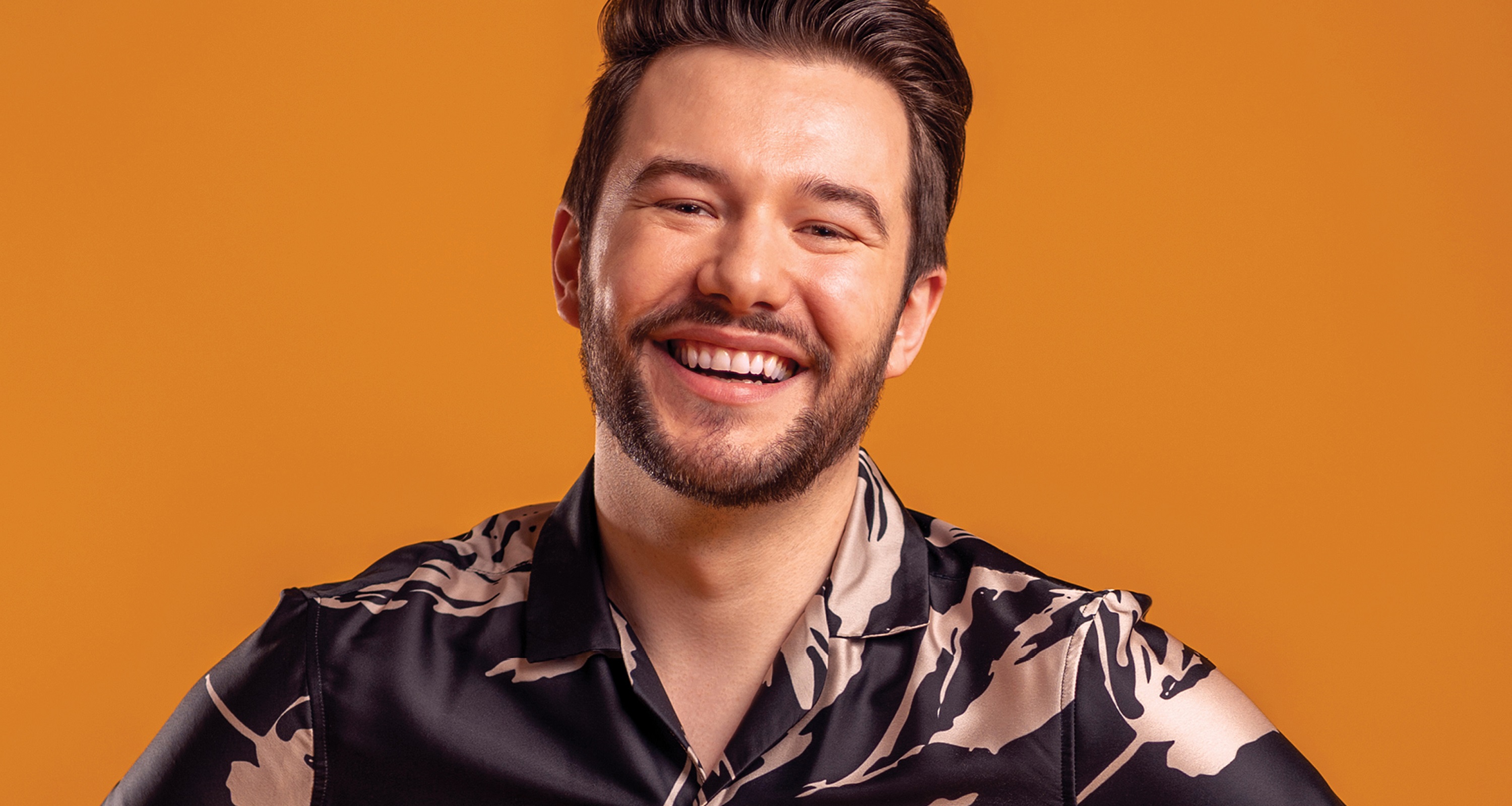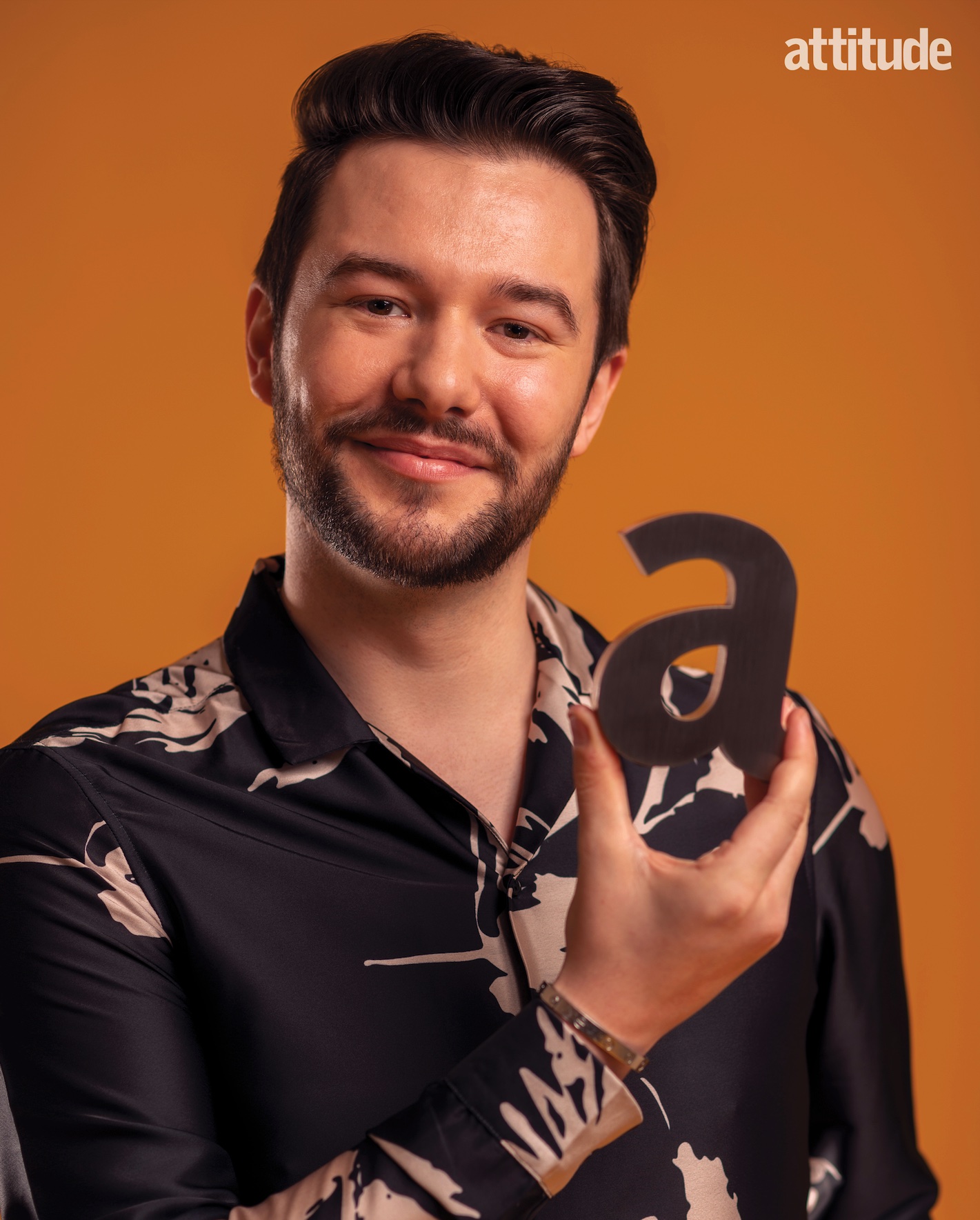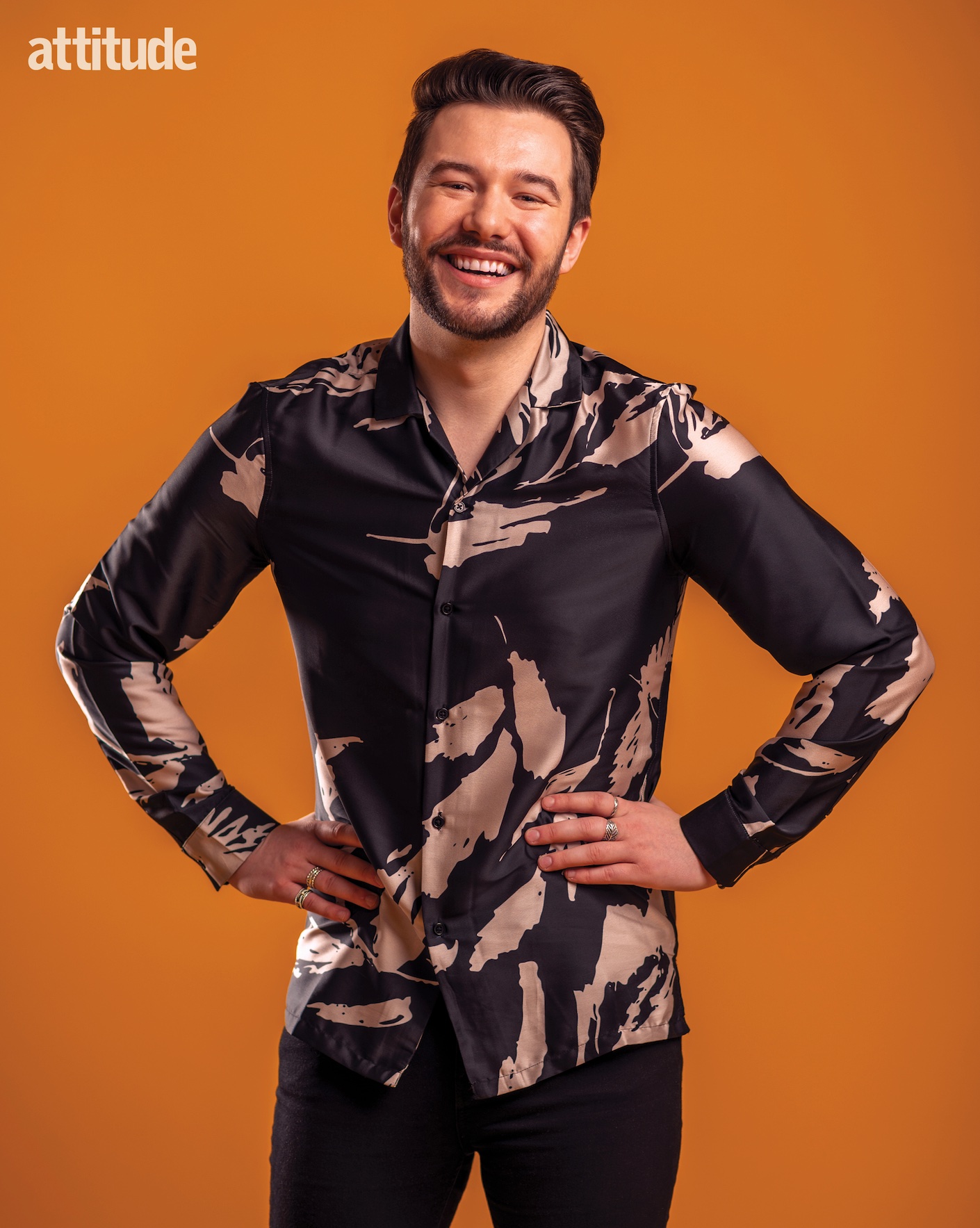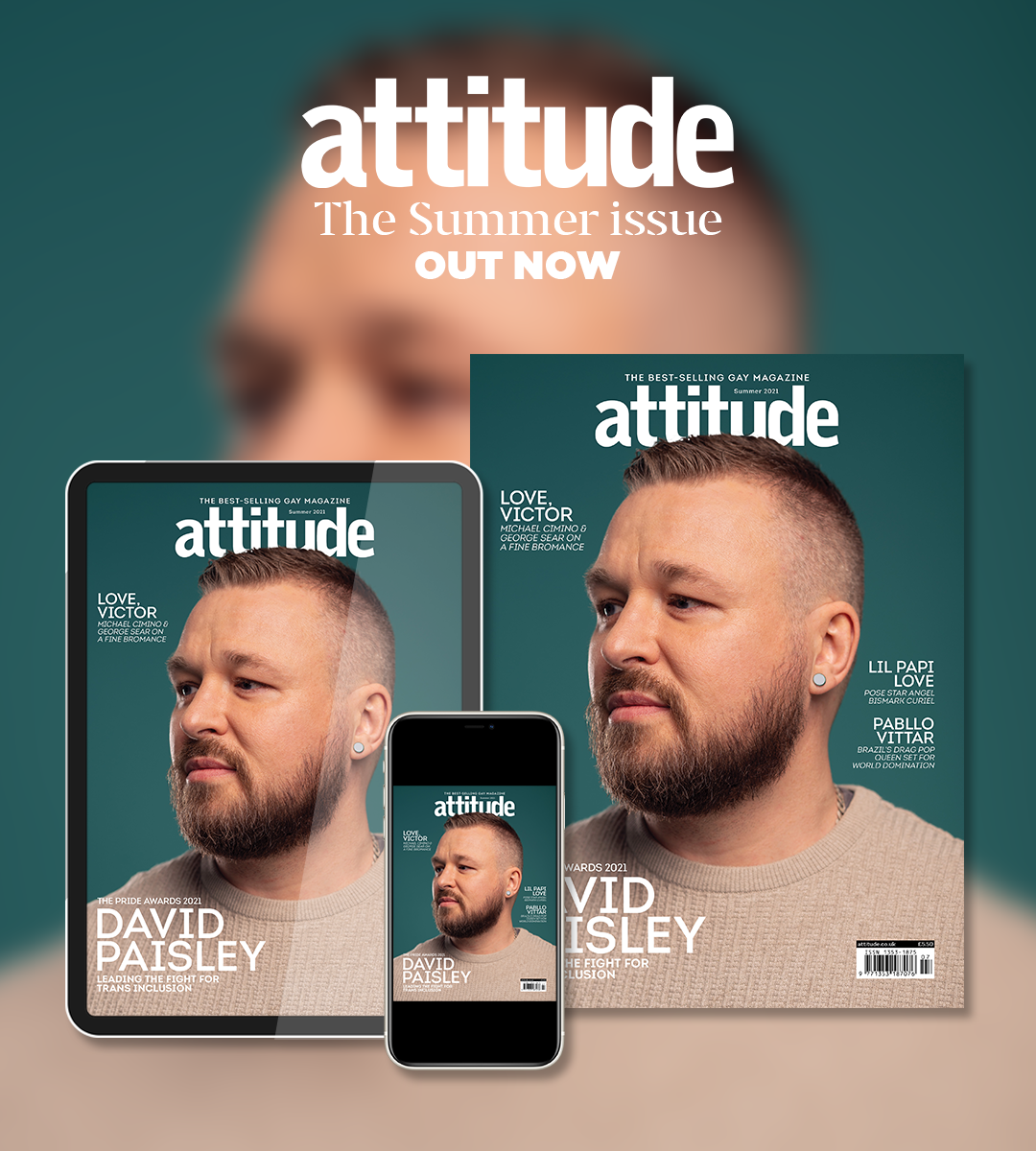The gay cancer survivor bringing together others battling the disease
Alike founder Brad Gudger is one of 10 everyday LGBTQ heroes honoured at the Attitude Pride Awards 2021, supported by Clifford Chance.

Interview: Cliff Joannou; Pictures: Markus Bidaux
The Attitude Pride Awards, supported by Clifford Chance, are part of Attitude Pride at Home, in association with Klarna.
For years, Brad Gudger thought his biggest challenge in life would be coming out in his home village of Appleton Wiske, North Yorkshire. He needn’t have worried — friends and family embraced him when he opened up at the age of 17. “I am very aware of how privileged that is, especially coming from a rural area,” reflects Brad.
But his joy wasn’t to last when he fell seriously ill. “The symptoms developed over a long period of two years,” says Brad. “When your body changes slowly, you don’t notice it in the mirror every day. I would find a bruise when I was changing. I had excessive tiredness. I’m in class, it’s 10am, I had a really good night’s sleep, but my eyes feel like they have weights attached to them. I was going through A levels, I had two jobs to save for university, so I thought I was exhausted for that reason.
“I had night sweats, waking up most mornings drenched. I thought all of these things were isolated. I started getting a really bad pain in my rib.
“I remember thinking, why does my body feel like it’s falling apart? I’m 18. Why do I feel like a 70-year-old?”
One evening in 2013, Brad’s mother walked past his bedroom while he was changing and noticed he looked skeletal yet bloated. She insisted on taking him to A&E, where a triage nurse inspected his stomach. He had bloods taken, and an MRI. Just 24 hours later he was diagnosed with chronic myeloid leukemia, a cancer of the blood that originates in the bone marrow.
“A fog descended across my mind”
Brad finds it hard to recount this time. “I can’t really remember the thoughts; numbness is the key thing. A fog descended across my mind.” He started oral chemotherapy immediately, taking tablets twice a day and having chemotherapy injections once a week for four months.

His mental health took a hit, and his emotions lurched from feeling positive to shouting at his family. “It was an emotional whiplash. For me and everybody around me,” he recollects. On the toughest days, Brad struggled to get out of bed to wash himself. “It’s such a strange thing to think about your body failing you in that way,” he says, before adding that he still hasn’t left those emotions behind. “There’s a fear of it always coming back. That’s something you have to live with.”
When the chemotherapy stopped, Brad felt his body bouncing back. He gained muscle and his hair started growing back thicker. His mental health rebounded, too.
“You’re constantly living with trauma”
After he recovered, Brad moved to London. “I survived cancer. Why not? I’ve always absolutely loved London. The sense of home for people with different identities and experiences.” He threw himself into creating a new life, making new friends, studying business management, and working in fashion PR and even showbiz entertainment alongside his degree.
“I told myself that I was a cancer survivor. But I wasn’t, I was still a cancer patient.” Every Monday, Brad went to the clinic to have blood taken and his body weighed. “It’s like returning to the scene of the crime. And I don’t want this to sound disingenuous or controversial, but when somebody experiences trauma, there is no way anybody would ever ask that person to return to the scene where it happened. That’s what cancer patients and survivors have to do all the time. You’re constantly living with trauma. No wonder I decided to close off to it.”

One Monday in 2016, his consultant told him there was an issue with his blood and he was not reacting to treatment. “I remember feeling so much lonelier than I’d ever felt.” They adjusted his treatment, but a year later the consultant broke the news that his body was not responding. “I don’t know if I’m allowed to say it, but I was angry. I worked so hard on my mental health to keep things together.”
Brad underwent a bone marrow transplant in January 2018 after a search for the right donor resulted in his brother being the best candidate. He was in treatment for six months, and had to battle a series of infections. At one point, Brad was in an isolated room with only a nurse and a doctor allowed access. “They need to destroy your bone marrow, which is the root of your immune system… How would you even describe what that does to somebody?
“There’s definitely a lot of reflection”
There were moments when he thought it would be so much easier if he died: “Just to be pain-free; what’s the point of me being treated if it feels this bad? That’s the paradox of cancer treatment, even though it’s getting better, they have to break you down, destroy you, to help you. They need to get rid of the tumours that are making you ill.”
Eventually, his bone marrow grafted. The treatment had worked. “I definitely felt like I had gone through that experience for something greater. My life turned around and I was, like, ‘Oh my God, it’s the end of 2018 and I feel great.’”
Today, in full remission, Brad is a cancer survivor. “I’m not in any danger, but there’s definitely a lot of reflection. Cancer has been the most dominant thing of my life; it’s been a part of my life for a decade.” He is also aware how cancer is not discussed in relation to its effect on LGBT+ people. “Cancer strips you of identity, something that you’re so proud of, that you’ve worked towards. I worked on myself as much as I could, but as soon as cancer comes, it strips you of that — of your proud self.”
In response to his experience, Brad launched Alike, a charity to combat loneliness and isolation among people diagnosed with cancer, connecting people via the Alike app. “Something that I’m really passionate for Alike to do is not just to forge connections within the cancer community and help people find the community that they really need to help them get through and beyond cancer, but create visibility for communities that don’t have visibility, like members of the LGBT+ community, members of the Black community. I want Alike to be a safe space for all people diagnosed with cancer.”
Read more about this year’s Pride Award recipients in the Attitude Summer issue, out now.
Subscribe in print and get your first three issues for just £1 each, or digitally for just over £1.50 per issue.

